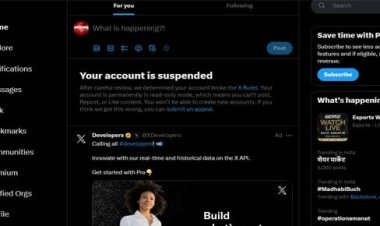Data Brokers Are Quietly Doxing You — And There’s Little You Can Do About It
Data brokers have quietly built one of the most powerful — and dangerous — industries on the internet.

Data brokers have quietly built one of the most powerful — and dangerous — industries on the internet. These companies scrape your personal details from every corner of the web, bundle them into digital profiles, and sell them to anyone willing to pay.
What makes them truly alarming is that they don’t discriminate. Whether it’s an ad agency, a political campaign, or someone with darker intentions — even an ex-partner or a cybercriminal — data brokers will sell your information to all.
Rob Shavell, CEO and co-founder of DeleteMe, told that data brokers are “companies that have personal information about us that we don't have a customer relationship with.” Their business model is simple: collect, store, and sell data — with no moral or legal obligation to vet who’s buying.
“They’ll sell to political organizations to target voters… they don’t care whether it’s a Russian or Chinese group pretending to be legitimate,” Shavell said.
Legal, but Barely Regulated
In the U.S., data brokers operate almost entirely in the shadows. Unlike the U.K. or the European Union, there are virtually no modern laws restricting what data can be sold or to whom. Most of the few existing regulations date back to the 1970s — long before the internet even existed.
Shavell describes the system as a “black box.” No one really knows where the brokers get their data, how they verify it, or who they ultimately sell it to.
“You don’t know where they’re scraping it from, and you don’t know who they’re selling it to on the other side,” he explained.
What Kind of Data Are They Selling?
Pretty much everything. In the past, data brokers mainly trafficked in basic personal details like your name, phone number, and address. Today, their databases go much deeper — including relatives, birthdays, vehicle history, political views, and even court records.
Shavell says the average DeleteMe customer used to have around 250 pieces of identifiable personal information (PII) floating online. Now that number has tripled — to over 700.
As our digital lives expand, data brokers are building more detailed profiles — gold mines for cybercriminals who specialize in identity theft, scams, or stalking.
Doxing by Another Name
When you think about it, data brokers are basically doxing people — just legally and for profit. Doxing is the act of exposing personal information to harm or intimidate someone. Brokers, Shavell points out, “must advertise our information for sale to make money — so yes, they are doxing us.”
Online disagreements can easily escalate when personal data is so accessible. “People argue on social media, and instead of walking away, they now have the means to dig up and publish someone’s private information,” Shavell said.
The Invisible Threat
From fraud to harassment to political manipulation, the misuse of this data is only getting worse. And yet, in most cases, there are no consequences for the brokers selling it.
“There are no penalties — or very few penalties — for data brokers today,” Shavell warned.
Until laws catch up, your personal information remains a commodity — one that’s being bought, sold, and weaponized without your consent.






















